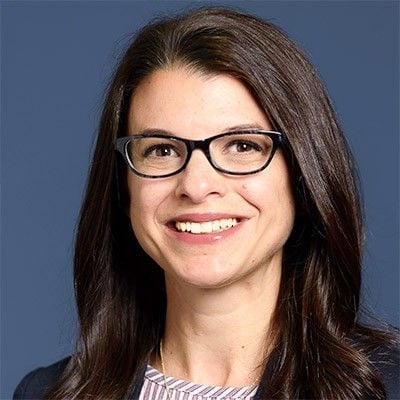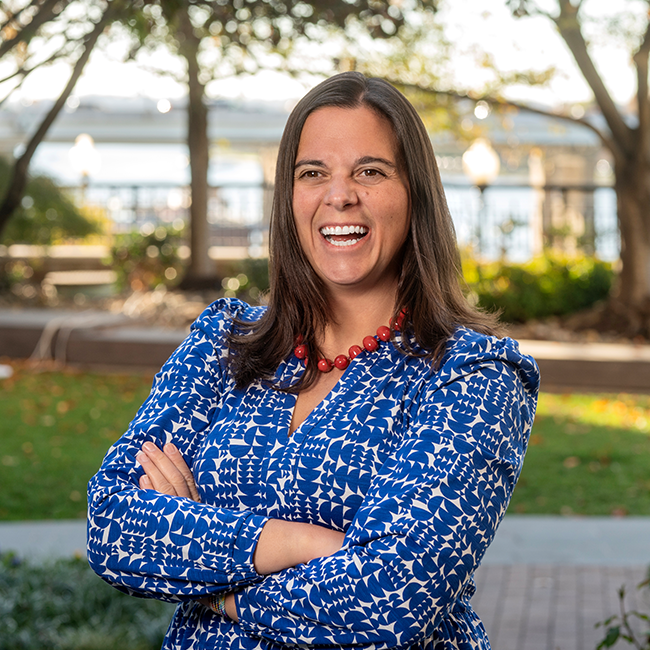
The Milken Institute, a global think tank focused on financial, physical, mental, and environmental health, today announced new implementation partnerships designed to expand technical assistance to help thousands of underserved urban and rural communities across the United States access the funding, capacity, and talent they need to advance critical community infrastructure projects.
“New tools to help underserved communities develop a loan-worthy and investment-ready project pipeline will create more local jobs and increase local climate resilience,” said Michael Piwowar, executive vice president for MI Finance. “Our 10,000 Communities Initiative and Community Infrastructure Center (CIC) project platform links investors, technical assistance experts, and community leaders to seize this moment.”
In the year since it launched, the 10,000 Communities Initiative has held a series of regional training events to engage local business, government, philanthropic, and community leaders across the United States around market-based approaches to leverage public investment and build long-term economic resilience and unveiled a project-matching platform with over 800 organizations onboarded to date.
“These partnerships are designed to reduce project development costs through generative AI, online grant-matching, and other innovative financing techniques,” said Rachel Halfaker, who leads Milken Institute’s CIC effort. “We can’t do this work alone. These additional partnerships will facilitate our ability to help resource-challenged communities in rural and urban areas to build new broadband, clean energy, and other local projects faster.”
National Broadband TA Marketplace
Billions in public funding have been earmarked for high-speed broadband deployments. However, communities have demonstrated the need for additional support to address challenges, including project delays while waiting for federal and state funds, the identification of sources beyond public subsidies for matching funds, access to and interpretation of data, and unexpected costly and complex grant application requirements.
The CIC is partnering with the Local Initiative’s Support Corporation (LISC) to host LISC's National Broadband TA Marketplace Channel. In the first phase, the CIC is supporting LISC’s Broadband Planning Help Hub, an initiative of the marketplace to connect communities with high-quality, targeted data and recommendations to produce investment-ready broadband plans. Proposals are accepted on a rolling basis from any community-facing entity leading local efforts around broadband. The CIC will provide additional grant-matching opportunities, project readiness evaluations, and match to available knowledge base resources, including datasets, templates, and case studies for deployment.
Community Development Financial Institutions Clean Energy Loan Pilot
The US Environmental Protection Agency (EPA) announced $20 billion of awards to eight coalitions through its $27 billion Greenhouse Gas Reduction Fund (GGRF). To help these coalitions build a loan-worthy pipeline of projects from underserved communities and to assist this new marketplace, the CIC is partnering with Banyan Infrastructure, Elemental Excelerator, and Purpose Venture Group to support the origination and maturation of loan-eligible projects and develop benchmarks and standards.
“GGRF represents a generational investment in mission-oriented community lenders creating an opportunity to finance emissions-reducing and money-saving projects in the communities they know best and support every day. To deploy these dollars effectively, they will need to demonstrate organizational readiness to design and deploy new financial products and develop robust market pipelines and operational partners. Purpose Venture Group is excited to join hands with the Milken Institute, Banyan Infrastructure, and Elemental Excelerator to create a blueprint for turning these federal dollars into local projects,” said Diana Rhoten, partner, Purpose Venture Group.
"GGRF presents an opportunity to build new investment partnerships and bridge market gaps that will help historically underserved communities access climate solutions,” said Christina Angelides, managing director of policy at Elemental Excelerator. “As an investor focused on scaling technologies with deep community impact, we are excited to be working with the Milken Institute and Banyan Infrastructure to build the capacity of green banks and community lenders to invest with us in a strong and growing pipeline of clean, cost-effective, and innovative infrastructure projects that meet the needs of local communities across the country."
"America can't finance the sustainable infrastructure it needs without teamwork and technology. Banyan Infrastructure has been at the forefront of innovation in project finance software, and this collaboration with the Milken Institute and Elemental Excelerator, both leaders in climate and technology, enables all three organizations to work in lockstep to accelerate the energy transition through better, more streamlined financing systems. If we can drive connectivity, interoperability, and standards among communities, developers, community development financial institutions, green banks, and Wall Street, we can transform the $27 billion into more than $50 billion of impactful capital," said Amanda Li, chief operating officer and co-founder, Banyan Infrastructure.
Will Greene, CEO and co-founder, Banyan Infrastructure, added, “This project will establish a connected ecosystem that drives standards and efficiencies towards accelerating the deployment and recycling of capital in a highly auditable, accountable, and transparent framework. Our objective is to transform the $27 billion of the GGRF into a more liquid and connected marketplace that will remain available for community lenders in sustainable infrastructure even after the GGRF funds are depleted.”
Using Generative AI and Data Tools to Build New Resilience Centers
Many underserved communities can’t access funding or technical assistance due to the limitations of both finding and writing grant applications, particularly those that are pursuing multiple opportunities. The CIC is partnering with California’s Strategic Growth Council, Streamline Climate, and Replica to support 20 community resilience centers through generative AI and data tools. In partnership with Streamline Climate, the CIC is supporting these community organizations to generate two alternative grant applications for a state grant program and an EPA program.
“Those in the most need are the least well equipped to navigate funding sources. For us to build a justice-first transition, we need to build tooling to make the process transparent and democratized. Streamline could not be more excited to partner with the Milken Institute in the initiative to accelerate funding for communities at the forefront of the climate transition,” said Helena Merk, CEO and co-founder, Streamline Climate.
Enhanced Data Tools to Support Climate Resilience
In partnership with Replica, the CIC is working to provide enhanced data profiles for these centers using land use, transportation, and demographic data to support project narratives and development.
"Data are critical for grant applications, especially when demonstrating the existence and extent of disparities within a community,” said Kiran Jain, chief legal and policy officer, Replica. “Reliable data help identify communities most in need, quantify the impact of proposed interventions, and establish a baseline against which progress can be measured. Replica is excited to partner with the Milken Institute to ensure data add transparency and accountability to equity-focused grant applications, ultimately increasing their chances of success and ensuring that resources are allocated where they are most needed."
Dynamic Project Readiness Assessments
Communities often find it challenging to evaluate both their grant readiness and project readiness due to the complexity of project components and varying standards of “prepared.” In partnership with HR&A, the CIC is providing every project sponsor with a dynamic project readiness assessment based on its technical solution, commercial structure, equity and impact considerations, governance model, and more.
“HR&A is proud to support the Milken Institute and the Community Infrastructure Center in their mission to connect over 10,000 under-resourced communities to information, technical assistance, and funding opportunities. Our partnership with the CIC began with collaborating on its project readiness assessment tool using HR&A's Infrastructure Funding Navigator. This tool helps communities understand how to prepare and implement infrastructure projects, connecting participants with tailored technical assistance to help make their project a reality,” said Jeff Hebert, CEO, HR&A Advisors.
“We know we can’t solve these challenges alone,” added the Institute’s Halfaker. “By boosting useful project development tools and services within our CIC platform, the 10,000 Communities Initiative will continue to facilitate the effective and equitable distribution of resources to traditionally underfunded community projects, support long-term infrastructure and economic resilience, and scale up an exciting new community pipeline of projects.”
Automated Grant-Matching to Federal, State, and Philanthropic Grants
To support project sponsors navigating the grant search, the CIC has partnered with OpenGrants, which has indexed over 10,000 federal, state, and philanthropic grant opportunities to match projects to grant opportunities automatically based on their location, organization, and project.
“OpenGrants is excited to work with our partners at the Community Infrastructure Center. When we launched OpenGrants, our goal was to make grant funding more equitable and accessible, and the CIC effort is accomplishing that,” said Sedale Turbovsky, CEO, OpenGrants.
Developing Place-Based Channel Support
In partnership with the Appalachian Regional Commission and Heartland Capital Strategies, the CIC will support the Appalachian Sustainable Finance Hub to provide a digital channel to advance strategic partnerships, financial innovation, and capacity building to generate and retain quality jobs and build a diversified, resilient, and clean economy.
In partnership with EPA Region 8’s Montana State University’s Thriving Communities Technical Assistance Center (TCTAC), the CIC will host, through a channel on the platform, the TCTAC’s communities that receive support. Montana State University will receive at least $10 million to provide technical assistance and training to underserved rural and tribal communities through its TCTAC.
10,000 Communities Initiative/Community Infrastructure Center
In partnership with other private and public organizations, the Milken Institute supports the 10,000 Communities Initiative to ensure that cross-sectoral attention, federal technical assistance funding, and impact capital are effectively deployed to the underserved communities that need it most. Our expanding CIC platform offers free tools and training resources to help interested communities access the expertise, training, capital, and partnerships required to advance their community infrastructure projects. Organizations and individuals with replicable community development projects aligned with regional demand (e.g., energy, water, built environment, etc.) can submit proposals at 10kcommunities.org.
Partner Descriptions
Banyan Infrastructure is a project finance software platform designed to simplify, accelerate, and optimize sustainable infrastructure financing across the deal life cycle. Its solution oversees and automates the complex and time-consuming processes in the origination, portfolio, and compliance management of sustainable assets, which boosts profits per investment, increases deal velocity, and saves thousands of hours at every stage.
Elemental Excelerator is a nonprofit investor focused on scaling climate technologies with deep community impact. It brings more than a decade of experience across the climate sector, with an active and maturing portfolio of more than 150+ companies. Elemental fills two gaps fundamental to addressing climate change: funding projects for climate technologies in communities and embedding equity and access into climate solutions. It invests in transformative technologies to create a system change for a more resilient, equitable future. In 2021, it spun out a venture fund, Earthshot Ventures, to draw even more capital into climate companies.
Local Initiative Support Corporation, together with residents and partners, helps forge resilient and inclusive communities of opportunity across America—great places to live, work, visit, do business, and raise families.
OpenGrants is run by an experienced and passionate team of entrepreneurs, technologists, and philosophers. It believes that, if done right, a business can be an effective catalyst for lasting change. Its past experiences exposed major challenges with grant funding, so it’s building the tools and community to solve them. It’s not an easy path and not a typical company. Its mission—to build modern infrastructure for public funding to massively improve the efficiency and equity of those funds—is what drives it every day.
HR&A Advisors helps create more equitable, resilient, and dynamic communities. Its work turns vision into action through rigorous analysis, strategy development, and implementation planning. It has offices in New York, Atlanta, Dallas, Los Angeles, Raleigh, and Washington, DC, a presence that allows it to serve clients all over the world. From Brooklyn to London, Cincinnati to Medellín, it has guided hundreds of clients in transforming real estate and economic development concepts and public infrastructure, first into actionable plans, then into job-producing, community-strengthening assets. It has served a diversity of clients—real estate owners and investors, hospitals and universities, cultural institutions, community development organizations, and governments—since 1976.
Purpose Venture Group is the strategy consulting firm that makes impact investible. For it, this means three things. First, it underwrites your plan as an investor would, helping you define a path to profitable impact that attracts capital. Second, it identifies the risks and bottlenecks on your path and help you overcome them. Third, it leverages its networks as well as its policy and market know-how to expand your reach and potential, helping you scale faster. It measures its success by the market traction and revenue growth of its clients, the capital they secure, and the positive impact they have on the lives of real people in real time.
Replica is a data platform and analytics company on a mission to radically improve how decisions are made about the built environment and measure their impacts including equity and mobility. Replica has worked with some of the largest public-sector agencies in the US, including Caltrans, TxDOT, MassDOT, DelDOT, Illinois DOT, Port Authority NYNJ, and NYC MTA, as well as dozens of cities and MPOs, including NYMTC, MWCOG, Broward County, and the country’s largest AEC firms.
Streamline Climate is an AI-powered software platform that helps you find and apply for government funding for the energy and climate transition. Organizations they've worked with to date have saved up to 80 percent of their time on building out grant and RFP narratives.















